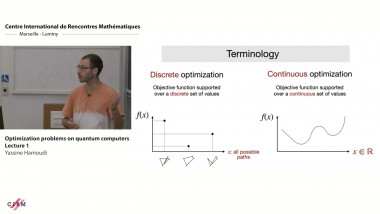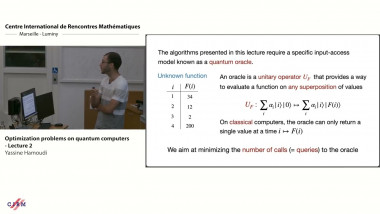
Drawing curves on surfaces or: how I learned to stop worrying and love train-tracks
De Saul Schleimer

Generative AI and Diffusion Models: a Statistical Physics Analysis (3/3)
De Giulio Biroli

Exploring the High-dimensional Random Landscapes of Data Science (3/3)
De Gérard Ben Arous













